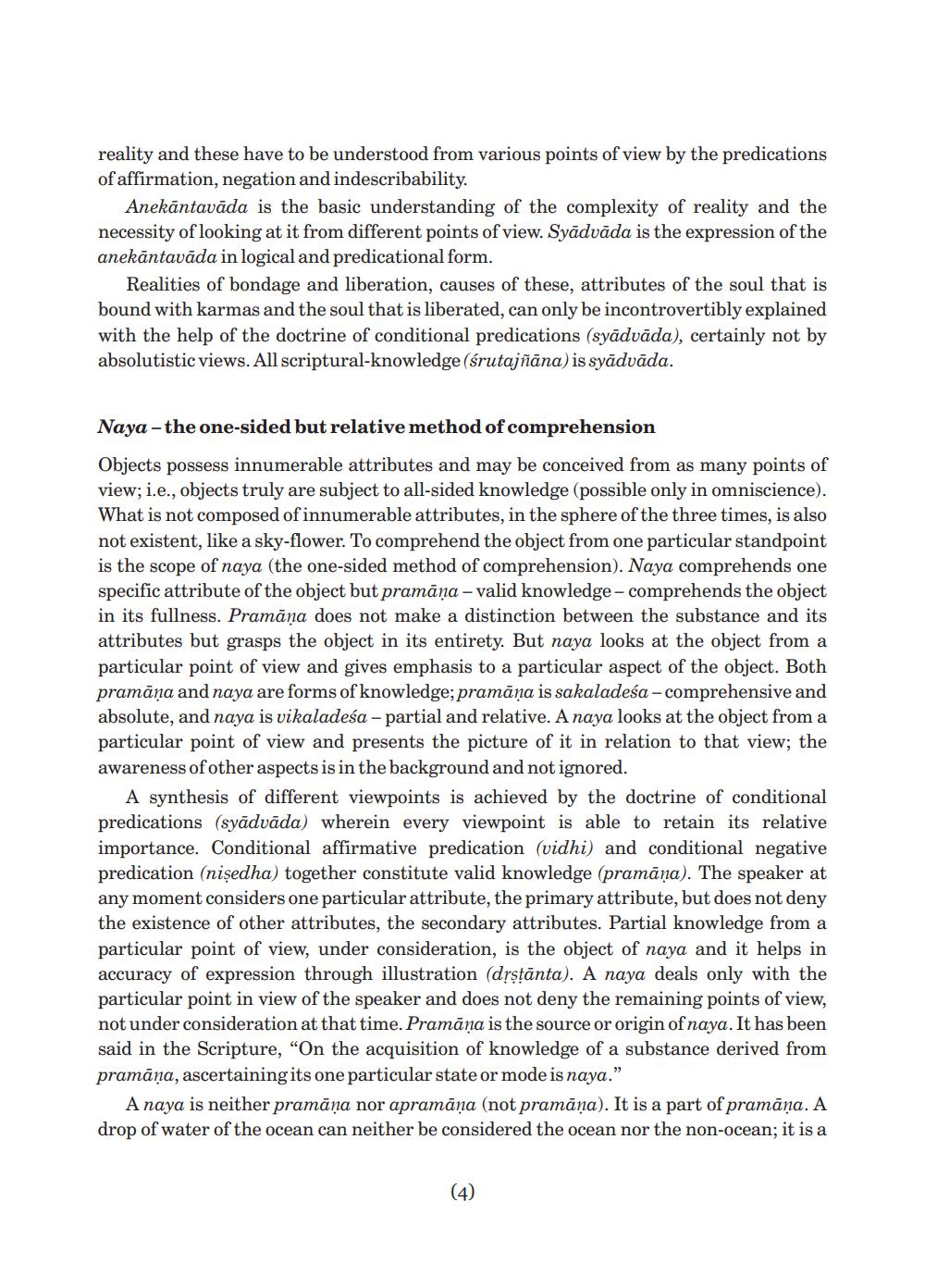________________
reality and these have to be understood from various points of view by the predications of affirmation, negation and indescribability.
Anekāntavāda is the basic understanding of the complexity of reality and the necessity of looking at it from different points of view. Syādvāda is the expression of the anekāntavāda in logical and predicational form.
Realities of bondage and liberation, causes of these, attributes of the soul that is bound with karmas and the soul that is liberated, can only be incontrovertibly explained with the help of the doctrine of conditional predications (syāduāda), certainly not by absolutistic views. All scriptural-knowledge (śrutajñāna) is syāduāda.
Naya - the one-sided but relative method of comprehension
Objects possess innumerable attributes and may be conceived from as many points of view; i.e., objects truly are subject to all-sided knowledge (possible only in omniscience). What is not composed of innumerable attributes, in the sphere of the three times, is also not existent, like a sky-flower. To comprehend the object from one particular standpoint is the scope of naya (the one-sided method of comprehension). Naya comprehends one specific attribute of the object but pramāņa - valid knowledge - comprehends the object in its fullness. Pramāņa does not make a distinction between the substance and its attributes but grasps the object in its entirety. But naya looks at the object from a particular point of view and gives emphasis to a particular aspect of the object. Both pramāna and naya are forms of knowledge; pramāna is sakaladeśa - comprehensive and absolute, and naya is vikaladeśa - partial and relative. A naya looks at the object from a particular point of view and presents the picture of it in relation to that view; the awareness of other aspects is in the background and not ignored.
A synthesis of different viewpoints is achieved by the doctrine of conditional predications (syādvāda) wherein every viewpoint is able to retain its relative importance. Conditional affirmative predication (vidhi) and conditional negative predication (nişedha) together constitute valid knowledge (pramāna). The speaker at any moment considers one particular attribute, the primary attribute, but does not deny the existence of other attributes, the secondary attributes. Partial knowledge from a particular point of view, under consideration, is the object of naya and it helps in accuracy of expression through illustration (drstānta). A naya deals only with the particular point in view of the speaker and does not deny the remaining points of view, not under consideration at that time. Pramāna is the source or origin of naya. It has been said in the Scripture, “On the acquisition of knowledge of a substance derived from pramāņa, ascertaining its one particular state or mode is naya.”
A naya is neither pramāņa nor apramāņa (not pramāņa). It is a part of pramāņa. A drop of water of the ocean can neither be considered the ocean nor the non-ocean; it is a
(4)




